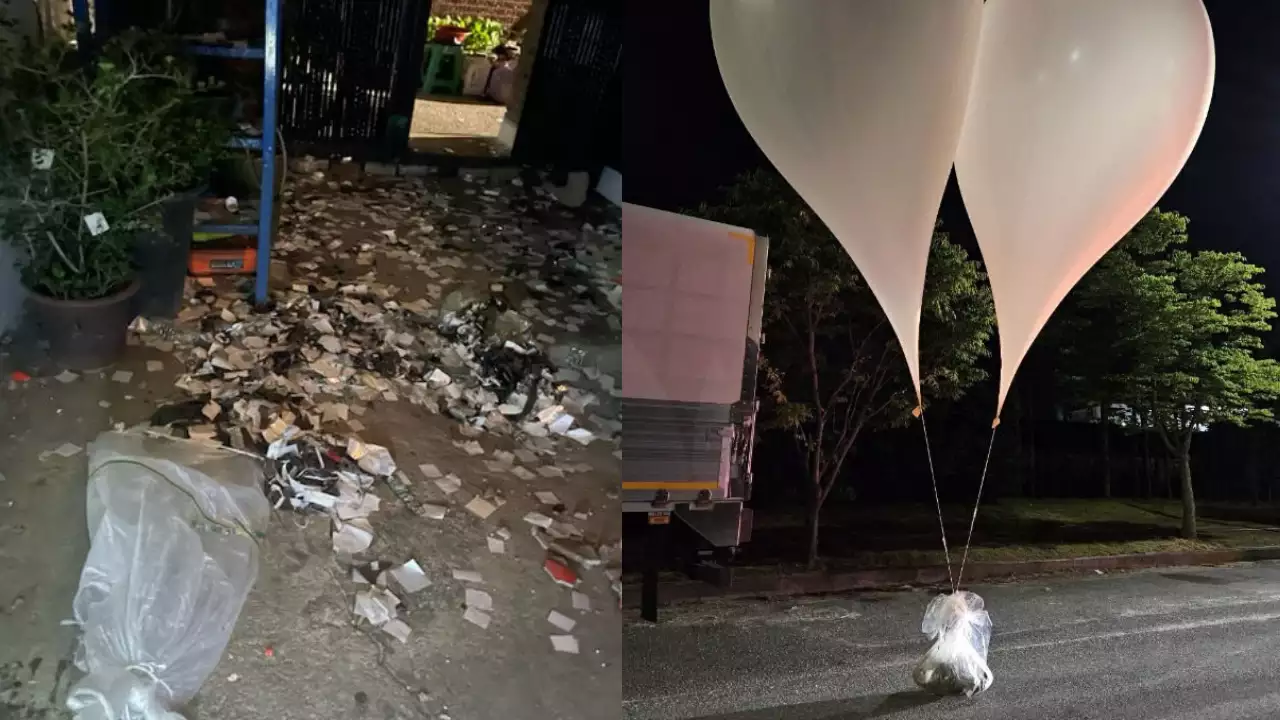In an escalating act of provocation, North Korea has released at least 260 balloons laden with rubbish into South Korean territory, prompting serious health and safety concerns. South Korean authorities have urged residents to remain indoors and avoid contact with the white balloons and attached plastic bags, which contain “filthy waste and trash.”
The balloons have been discovered across eight of South Korea’s nine provinces and are currently undergoing analysis. The South Korean military has advised the public to report any sightings of unidentified objects to the nearest military base or police station.
Historically, both Koreas have employed balloons for propaganda purposes since the Korean War in the 1950s. However, the recent incident appears to be a direct retaliation against South Korean activists who have been scattering anti-Pyongyang leaflets and other materials along the border. North Korea’s Vice-Minister of Defence, Kim Kang Il, issued a statement promising retaliation against these activities, warning of impending “mounds of wastepaper and filth” being scattered over South Korean territory.
Late on Tuesday, residents in northern regions, including areas close to the capital, Seoul, received text alerts from provincial authorities, urging them to stay indoors and avoid outdoor activities. These alerts followed reports of balloons carrying hazardous materials such as toilet paper, dark soil, batteries, and what appeared to be faeces, based on color and odor.
The South Korean military has condemned the actions as a “clear violation of international law,” emphasizing the threat to public safety. “North Korea is entirely liable for what happens due to the balloons and we sternly warn North Korea to immediately stop this inhumane and crass action,” a military spokesperson stated.
The incident highlights ongoing tensions and the unconventional methods of psychological warfare employed by both sides. Activists in South Korea have previously launched balloons carrying cash, banned media content, and other items into North Korea. Despite a law passed in December 2020 criminalizing the launch of anti-Pyongyang leaflets, such activities persist, stirring controversy over freedom of speech and human rights.
North Korea has a history of similar provocations. In 2016, balloons launched into South Korea carried items such as toilet paper and cigarette butts, which Seoul police described as “hazardous biochemical substances.”
As authorities continue to analyze the contents of the latest balloon payloads, the situation underscores the ongoing volatility and complex relationship between the two Koreas. The South Korean government remains vigilant, prioritizing the safety of its citizens while addressing this unconventional threat from the North.
